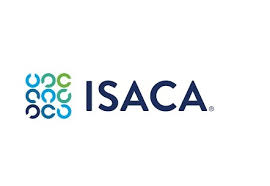- Tim Hortons Brews Up Excitement as it Makes its Debut in Hyderabad
- ZEE5 Original Bengali series, Paashbalish, premieres on May 10
- Consolidated Truck Parts & Service Celebrates the Importance of Dependable Staff in Heavy-Duty Truck Garages
- Works by Chagall, Dufy, Picasso, Hockney, Nadal, Others are in Ahlers & Ogletree's May 16th Auction
- RX Clinic Pune Announces Unique Blend of Wellness and Beauty Treatments
- LuLu Fashion Week Showcases Diverse Beauty in Kochi
- Brandi Dugal's Educational Fidget Game Lands Deal on Shark Tank
- Farahi Law Firm Honored Among Top 3 Personal Injury Lawyers in Torrance by Three Best Rated
- New Innovations in Printer Repair Services Transform Naples' Business Operations
- ACI Worldwide has released a report, titled \'Global Real-Time Payments Growth: Sustainable Trends and Emerging Markets\'
- Ascelia Pharma Successfully Meets Primary Endpoint with Strong Headline Results in Orviglance Phase 3 Study
- Women in Cloud Partners with Insight Enterprises for Fourth Annual #empowHERaccess Awards
- The Joint Injection Clinic Launches Hyaluronic Acid Injections for Knee Osteoarthritis Treatments
- Medhavi Skills University and Digital Bridge International join forces to redefine IT education in India
- White Jacobs Expands Credit Repair Services to Macon, GA, and Sacramento
 Mail to a Friend Mail to a Friend |
|
     |
Half of Privacy Pros in India Say Privacy Budgets Currently Appropriately Funded

Half of Privacy Pros in India Say Privacy Budgets Currently Appropriately Funded, but a Third Expecting Those Budgets to Decrease This Year
From India's Personal Data Protection Bill to Brazil's General Data Protection Law, the past year saw new developments and updates to privacy regulations across the globe. According to ISACA's Privacy in Practice 2024 survey report, half (51 percent) of the India-based respondents say their organizations find it easy to understand their privacy obligations and a majority (62 percent) are very or completely confident in their organization's privacy team's ability to ensure data privacy and achieve compliance with new privacy laws and regulations.
More than 1,300 professionals globally, including 71 from India, who work in data privacy roles responded to the survey, weighing in on privacy topics such as staffing, organization structure, policies, budgets and training.
Privacy Challenges
In addition to finding it easy to understand the privacy regulatory landscape, organizations in India also feel that the budget is currently mostly appropriate. More than half of respondents (51 percent) say their privacy budget is appropriately funded and only 23 percent say their budget is somewhat or significantly underfunded. When looking at the year ahead, 42 percent say that they expect their budget will increase (down 20 points from last year), and only 1 percent say it will remain the same (down 8 points from last year). However, a third of respondents (32 percent) expect a decrease in budget, which is higher than last year, when only 6 percent expected a decrease in budget.
The path to forming a privacy program is not always a smooth one, either, with Indian respondents indicating that the top obstacles include:
� Lack of competent resources (44 percent)
� Complex international legal and regulatory landscape (35 percent)
� Management of risks associated with new technologies (35 percent)
� Lack of clarity on the mandate, roles, and responsibilities (34 percent)
In seeking those competent resources, technical privacy positions are in highest demand, with 75 percent of Indian respondents indicating there will be increased demand for technical privacy roles in the next year. Legal/compliance roles come a close second with 73 percent feeling that there will be increased demand. However, respondents indicate there are skills gaps among these privacy professionals; they cite experience with different types of technologies and/or applications (58 percent) as the biggest one.
When looking at common privacy failures, respondents in India pinpointed the non-compliance with applicable laws and regulations (44 percent), data breach/leakage (42 percent) and not practicing privacy by design (41 percent) as the main concerns.
�When privacy teams face limited budgets and skills gaps among their workforce, it can be even more difficult to stay on top of ever evolving and expanding data privacy regulations and even increase the risk of data breaches,� says Safia Kazi, ISACA principal, privacy professional practices. �By understanding where these challenges lie, organizations can take the necessary measures to remedy them and change course to strengthen their privacy teams and programs.�
Taking Action
One of the ways that organizations are mitigating both workforce gaps and privacy failures is through training. A majority of India-based respondents (61 percent) note they are training to allow non-privacy staff to move into privacy roles, while 45 percent have increased reliance on credentials to attest to actual subject matter expertise.
To assess the effectiveness of privacy programs, survey respondents in India note their organizations are most often taking the approach of: - ?
� Performing a privacy risk assessment (68 percent)
� Performing a privacy impact assessment (PIA) (61 percent)
� Undergoing a privacy audit/assessment (46 percent)
� Performing a privacy self-assessment (41 percent)
Global Insights
With employee training, 86 percent globally indicate their organization provides privacy awareness training for employees, with 66 percent are providing training to all employees annually, and 52 percent of global respondents are providing privacy awareness training to new hires. Sixty percent of organizations review and revise privacy awareness training at least annually. Seventy-one percent believe that privacy training has had a strong or some positive impact on privacy awareness in the organization. Interestingly, respondents note that their organizations are most often looking at the number of employees completing training (65 percent) as the main metric used to track effectiveness of privacy training and not a decrease in privacy incidents (56 percent).
Organizations are also taking action to strengthen data privacy by using a variety of privacy controls beyond what may be legally required, with the top three globally being identity and access management (74 percent), encryption (73 percent), and data security (72 percent).
Company :-PRHUB
User :- Madhulina Das
Email :-madhulina@prhub.com
Phone :-08022483008
Mobile:- 08022483007
Url :- https://www.prhub.com/









